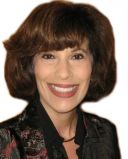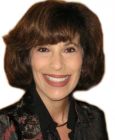Friends
Snippets of a Life: Memories that Define Me
Personal perspective: Our small memories help to remind us who we are today.
Posted September 21, 2022 Reviewed by Devon Frye
Key points
- Profound memories help to define us.
- Our morals and values are often determined within our memory banks.
- Even at a young age, we learn who we are.
- Pivotal moments and conversations, even with strangers, can transform us.
Where do we obtain our moral compasses and when does this happen? We often mistakenly surmise that young children do not understand enough of the adult world to learn values and morals. Thinking back to some of my earliest memories, I clearly internalized lessons on justice. And we learn in tiny pieces that come together to create our older selves.
My earliest memories of learning right from wrong, for example, were in a market with my beloved father. I’m in the shopping cart at our San Francisco neighborhood market with my daddy, who's only 37 but seemed so old—so daddyish. I’m young enough to fit into the cart with my chubby thighs barely sliding through the two giant metal squares.
I’m facing my round-faced father, who’s full of joy at one of his favorite places where he can be surrounded by the foods he loves. He gives me grapes to eat while he is shopping. “Daddy,” I say, “We didn’t buy these. That’s stealing.” “Oh,” he responds, “They want you to try them.”
Somehow the unease in my stomach continues and it is then, perhaps, that my early moral compass is solidified. I feel deep within my stomach (always my emotional weather vane) I don’t really think they want us to sample the grapes as we cruise through the market. I do not envision, of course, the hard-working migrant farmers whose sore backs are bent as they pick these green, sweet treats or the possible pesticides that should be washed off before indulging. It’s the late 1950s and I only think we have taken something that doesn’t belong to us. For today, that is enough for my small being.
----
Empathy is nurtured by our environment and reinforced by role models who remind us that we must consider others. Understanding their plight through a deeply embedded compassion has been one of the recurring themes in my life. I have felt sad for the lone little girl on the playground who ate her lunch silently on an empty bench as I walked over to her to sit down next to her. I know what it is like to be chosen last for a team. But I have also gotten to know those who are hardened to the feelings of others. Their empathic connections are weak and undeveloped. Even at a young age, I learned to keep such people at a distance.
I am at sleep-away camp for the first time and feeling very vulnerable and lonely, but I am also with a very good friend, Anna. Or so I thought.
We were sitting around the campfire, on a bench, and it was our first day. I left to go to the bathroom and asked Anna to save my seat. When I return, my space is filled by another camper. “I asked you to save my seat,” I reminded Anna. “But she wanted to sit here,” pointing to another girl, unknown to us both.
This seemingly innocuous interaction solidified the definition and depth of our friendship going forward. I always thought we were so close, and that she understood my trepidation and insecurities about being away from home, but of course, Anna had another definition of our friendship. I learned who she was at that moment and she was the same as we grew into teenagers and young adults. “A fair-weather friend,” was what my mother called Anna. Decades and decades later, I have eliminated from my closest circle of friends those fair-weather friends, those who refuse to save my seat.
----
While we are greatly impacted by family and close friends, we sometimes have encounters and conversations with people we hardly know that create life-changing events. Such times have had a profound effect on my career.
I am 36 years old and am teaching English as a Second Language (ESL) at night at a nearby community college while my husband stays home with our three children. I love what I do, helping second language learners navigate the English language. I feel like Superwoman, a mom by day and a teacher by night, changing into professional clothes from my mommy attire of jeans and a soiled shirt spotted with formula stains.
I am at the end of my fourth year of teaching part-time and one of my very astute Venezuelan students asks me, “Is this all you want to do with your teaching?” I am jolted by his comment and suddenly question my teaching in this way, the status quo that works for me and for our family. I hadn’t thought of a full-time position or teaching during the day or teaching another course level. I was coasting along comfortably until that question literally forced me to respond internally. I smiled at him and told him I loved this job, but that night, that question, began the process of demanding more for myself and my career.
----
I think about returning to the university for my doctorate. This crazy idea begins when my two older sons are at college and my younger one is getting ready to attend as well. I talk to an acquaintance who had recently graduated with her advanced degree.
I share my dilemma with her: financial responsibilities with my own three children in college; my school schedule disrupting our home life, not to mention my full-time job; and my age. I tell her, “I will be 50 years old when I graduate with my doctorate.” She responds, “You'll be 50 either way, so why not go back to school?” The logic in that response helped me make my decision. Four years later, I walked across the stage to receive my diploma.


